Living in a selfie-centred world
By Khaled Diab
The selfie fad has reached epidemic proportions, but we don't live in more narcissistic times. Selfie-absorption is as old as civilisation itself.
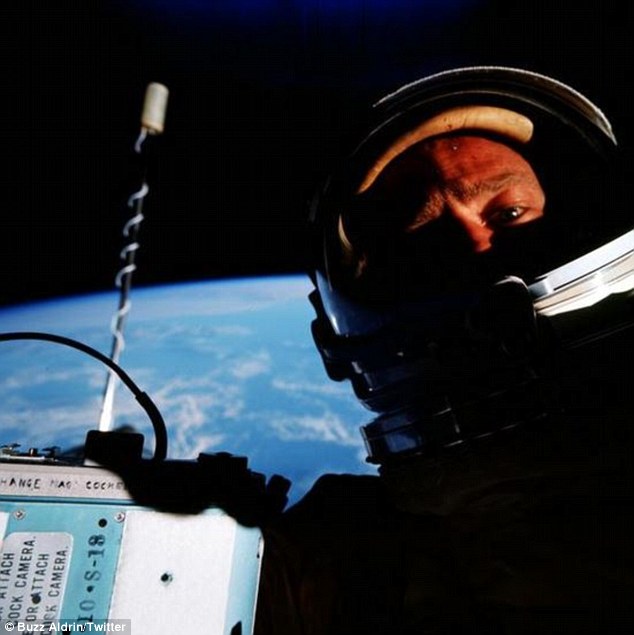
Monday 23 March 2015
It was a miracle of selfie-preservation. A 14-year-old British schoolboy on a skiing holiday in Austria improbably survived, with only a few bruises and scratches, a 500-metre drop after slipping while shooting a selfie.
And if his phone survived the fall too, the teenager may just have snapped himself the kind of digital self-portrait that will make him the awe of his Facebook friends, and could even go viral.
But it is not just young people who are doing it. During a recent holiday in Thailand, I was overwhelmed by the profusion of selfie sticks. While giant representations of Buddha meditated peaceably in the background in a state of selfless Nirvana, the tourists in the foreground gave full expression to their selfie-ish impulses.
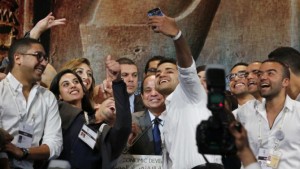
Beyond the clicker-happy tourist, a cursory glance shows that selfies have become one of the greatest fads around, with celebrities and even politicians embracing them, including Egyptian President Abdel-Fattah al-Sisi, who recently found it an opportunity for national selfie-actualisation.
A group selfie at last year's Oscar ceremony became the most re-tweeted image of all time – a picture that apparently spoke a billion dollars. And with the fuss about selfies at this year's ceremony, it won't be too long before we start hearing about a “best selfie” category being introduced at the Academy Awards.
The selfie tsunami has also swept Arab and Muslim countries. The young and savvy Indonesian Muslim convert-turned-popular-guru Felix Siauw caused widespread offence when he declared selfies to be haram because, echoing some of the seven cardinal sins, he maintained that they were expressions of pride and ostentation. This led outraged Indonesian social media users to post selfies of themselves under the hashtag #Selfie4Siauw.
Even Islam's holiest sanctuaries have not been immune, which has set off alarm bells in conservative quarters. Selfie fever reached such a pitch among pilgrims to Mecca and Medina that it provoked the ire of some Saudi religious scholars.
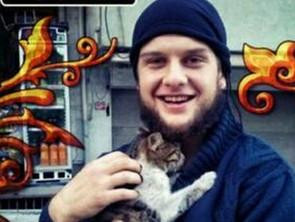
Radical, ultra-conservative Muslims go even further and liken the idle pursuit of selfies to idol-worship. For example, during their reign of terror in Afghanistan, the Taliban banned television, video and photography, which prompted one journalist to describe it as a “country without faces”.
As a sign of the changing times (or perhaps the end-times for millennialists), today's crop of foreign jihadists does not seem to have got this memo, or perhaps they believe that the “greater jihad” is the jihad of the selfie.
Many combatants have posted selfies of themselves on social media bearing arms, training, swimming, as well as surreally endorsing consumer products, including Nutella, not to mention a sideline in images of “mewjahideen” kittens.
The jihadist selfie is helping to transform the Spartan and puritanical image of holy war circa 1980s mujahideen in Afghanistan to make it resemble a mix between a lads' teen movie and an 18+ shoot'em-up video game.
Some observers believe there is a deliberate strategy behind these selfies, which are seen as being part of a drive to recruit more young foreign fighters by showing how “normal” and “cool” being an extremist jihadist is, by injecting a bit of Rambo-like glamour.
With even normally camera-shy Islamic extremists indulging in this photographic fad, it is little wonder that many view this trend as a sign of the narcissistic nature of 21st-century society.
But do we really live in a more selfie-centred world than our ancestors? I happen to think not. It is no coincidence that the modern psychological term for vanity and egotism is derived from the ancient Greek myth of Narcissus, who fell in love with his own reflection in a pool of water (nature's own selfie).
I believe that this moralising is largely a manifestation of the romanticisation of bygone days when people were supposedly kinder, nobler and more selfie-less. For example, space pioneer Buzz Aldrin claimed he took “the best selfie ever” during a 1966 spacewalk.
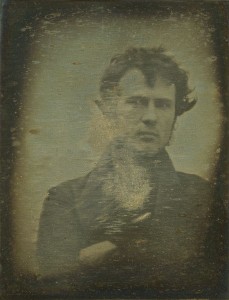
Though the word is new, the concept of the selfie is as old as photography itself. The first photographic portrait ever taken, in 1839, was a “selfie” – and required considerably more time and effort than today's instantaneous results – while the selfie stick may be almost a century old.
Prior to the invention of photography, the world was still awash with selfies, in the form of self-portraits. Though the boom in artists painting themselves began during the Renaissance, self-portraits have an ancient pedigree. One of the oldest surviving self-portraits is a sculpture of the Egyptian pharaoh Akhenaten's chief sculptor Bak, standing beside his wife.
The traditional Islamic aversion to depicting human forms meant that self-portraits were rare, but there have been some examples. Perhaps the most ambitious was the Akbarnama (The Life of Akbar), which chronicles, with exquisite miniature paintings, the biography of the third Mughal emperor Akbar. Though Akbar did not paint these portraits himself, the book was the emperor's idea and he commissioned the work.
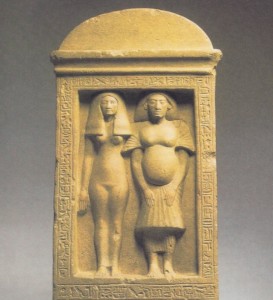
Arabs traditionally preferred word-based selfies, in the form of self-aggrandizing poetry. For example, in addition to his talent for writing panegyrics glorifying princes and kings, the legendary al-Mutanabi had a penchant for glorifying himself. In a poem chiding an ungrateful patron for not supporting him, the poet boasts that the blind and deaf appreciate his writing, and that his fame extends to the “steed, the night and the desert”, as well as “the sword, the spear, the paper and the pen”.
What this reveals is that modern technology has not made us more self-centred but has democratised our ability to express the more selfie-ish side of our nature, and on an unprecedented scale. What the ramifications of this are for the individual and for humanity has yet to be revealed, but once it is, be sure that someone will somehow make a selfie out of it.
____
Follow Khaled Diab on Twitter.
This is an extended version of an article which first appeared on Al Jazeera on 11 March 2015.


